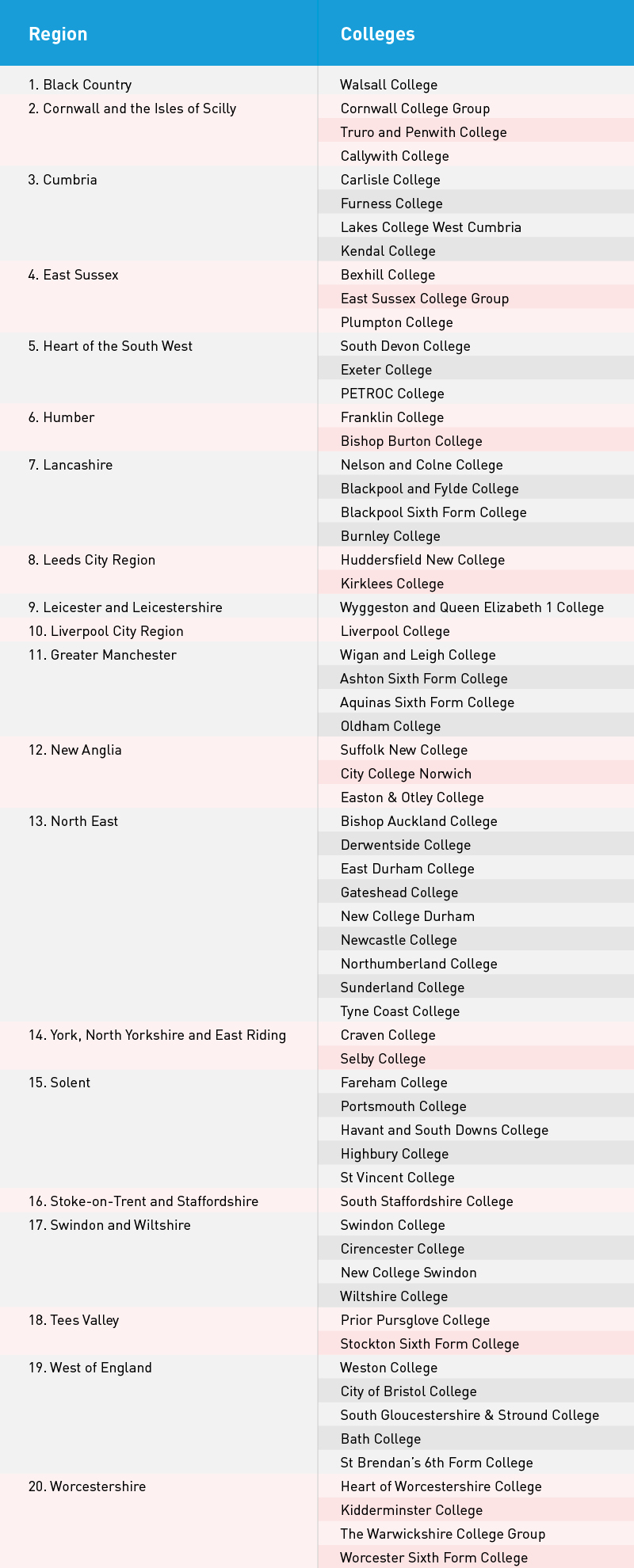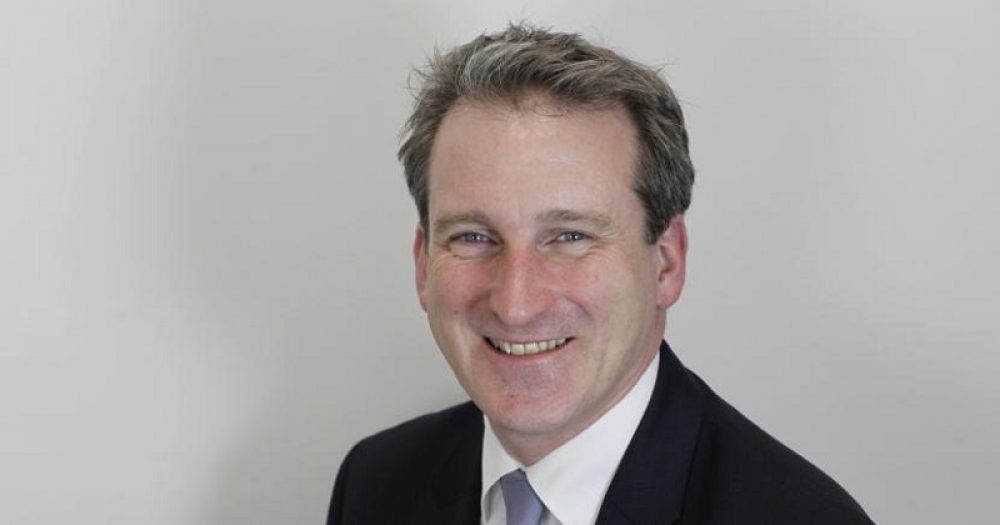The names of more than 60 FE colleges set to play key roles in new hubs, which the education secretary Damian Hinds has said will transform careers education across England, have been unveiled.
But question marks have been raised over how viable it will be for the colleges to implement the required changes, as the hub support fund amounts to just £1,000 per provider.
This is despite the Department for Education announcing an overall allocation of £5 million over two years to support the hubs’ development.
There will be 20 careers hubs in every region outside of London, which will comprise colleges working with local schools and universities, training providers, employers and career professionals to pool their expertise on improving careers education.
These form a central part of the government’s careers strategy, published in December, which focused the need to implement eight key “Gatsby benchmark” standards.
The careers hubs announced today will support young people with the right advice to help them make decisions about their future by building better links with employers
“The careers hubs announced today will support young people with the right advice to help them make decisions about their future by building better links with employers and providing practical guidance and support to improve the provision of careers advice,” said Mr Hinds.
The Careers and Enterprise Company, which has led efforts to establish the hubs on behalf of the government, has told FE Week the names of all the general FE and sixth-form colleges involved (see table below).
It also revealed that they will have access to funding, including a “central hub fund of equivalent to £1,000 per school or college”.
When asked if the CEC believed this amount would be sufficient, a CEC spokesperson said: “The central hub fund is one part of the money they will receive, but not the only strand. The exact funding per college will vary.”
Other financial support on offer was said to include funding of up to £3,500 for 15 colleges and schools in each hub to train a “careers leader”.
In areas facing “the greatest need”, schools and colleges will also “have access to a ‘virtual wallet’” of up to £5,000 each to fund what CEC calls “employer encounters” – which enable contacts to be established between employers and learners.
“Obviously the funding is really important, and we’re delighted to be able to offer this support to colleges and schools,” the spokesperson added.
“But it’s also worth highlighting the benefit to the colleges and schools of the joined-up approach, mutual support and sharing of best practice that comes with being within the network.”
Catherine Sezen, senior policy manager at the Association of Colleges, spoke positively of the new initiative. “To make informed choices for the future, young people need high quality, impartial careers information about all post-16 education and training options,” she said.

“We have long been calling for an improvement to the system and welcome the changes outlined.”
The North East Local Enterprise Partnership piloted the careers hub model from 2015 to 2017.
The government asked the CEC to “scale up” their model by establishing hubs across the country.
The north east is, however, the only region that will get a college-only hub.
A spokesperson for the regional local enterprise partnership said this was because they “know there are different challenges of scale and structure for colleges, which schools will not necessarily understand with regards to implementing the Gatsby benchmarks”.
These markers, set out through the Gatsby Charitable Foundation’s Good Career Guidance, include the need to link curriculum learning to careers, and to learn from career and labour market information.
The CEC was launched in 2015 to lead efforts on behalf of the government to connect more young people with the world of work.
Claudia Harris, the CEC’s chief executive, said: “Careers education has come a long way over the past few years. The Gatsby benchmarks have shown us what ‘excellent’ looks like.
“Creating these careers hubs is the next step on that journey,” she said.
“The new careers hubs announced today are an important step towards colleges being better equipped to implement the 8 Gatsby benchmarks set out in the careers strategy,” added Deepa Jethwa, careers policy lead at the Sixth Form Colleges Association. “The hubs will enable colleges to pool local expertise and secure high quality, impartial careers advice for students.”
The colleges involved with each careers hub:









CEC has so far received £40.8 million of government funding since 2015, and is expected to be given at least £18.8 million in each of the next two financial years. The announcement to spend a total of £60,000 (£1k for 60 colleges) on Career Hubs is incredulous! This 0.15% of £40m. Really puzzled as to how this will secure high quality careers advice for young people in England? Juxtapose this with the average salary of a college tutor circa £25k – £30k and/ or the cost of purchasing services from a professionally trained carers adviser. Whilst there are other small-scale funds made available by CEC, this is piecemeal and uneven across the regions. In reality, a postcode lottery continues with those most in need of careers support are being overlooked.